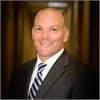I think if we talked about and promoted what it actually takes to become financially independent (while I am not sure many more people would actually do what is required) a lot of financial publications and websites would probably go out of business. Why? Because the process of becoming financially independent boils down to one thing and one thing only: the ability to delay immediate gratification. That said in 25 years of experience and in talking to thousands of people, I have yet to talk to anyone who is confident that they are saving the right amount of money to reach financial independence.
Now, of course, I have met people who are actually saving the right amount but I’ve never met anyone who was confident that they were saving the right amount.
In order to become financially independent (which I will define in a minute), higher income individuals need to be saving/investing somewhere between 20% to 30% their of gross family income. Yes, that is 20%-30% of gross family income. Now it’s one thing to know intellectually that one should be saving 20%-30% of gross family income but it is entirely another thing to actually do it and do it consistently for the rest of our working lives.
Let’s define financial independence. (It is not simply being debt-free or mortgage-free, far from it since most clients’ mortgage payments are generally in the range of only 10% to 30% of their total monthly spend/burn-rate.) Being mortgage-free maybe a good start but it only gets us 1/5 of the way there. Financial independence is that point in time where someone has enough assets and those assets can generate enough income that they can live the life that they want and they never have the fear that they will outlive their money.
As I mentioned, you can intellectually know how much you need to save, but it won’t get you any closer to actually doing it. Knowing and doing are two entirely different things. I have learned over the years, much like in my clients’ business lives, the only way to make sure something happens consistently is to create a system around it. Personal cash flow should be no different than business cash flow or any other systems we implement in our lives to ensure that something happens and happens consistently.
Although I don’t have the time in this blog, nor is it the scope of the topic, to cover how to systematize your personal cash flow, I will mention how most Americans run their cash flow: Ultimately, they end up making purchase decisions or saving/investment/wealth-building decisions based on how they feel at a given moment, meaning if there is a lot of money in the account(s), they spend it; if the account(s) are reaching zero or low levels, they stop spending and stress. We must adhere to a cash flow system that takes emotion and feelings out of the process. A system is based on emotion will never lead to financial independence. We need a system that helps us spend or give to charity with no regrets because we are confident we are saving the right amount.
In summary, long term financial success boils down to only one thing: delayed gratification. After all, true financial freedom isn’t about buying whatever we want, whenever we want it; it is really about being content with what we already have.
Up next, we’ll get into #4 of the 10 Most Common Business Owner Blind Spots series ‘What are Entrepreneurial Assets, What are Financial Assets, and Why the Difference Really Matters?’ Stay tuned!



